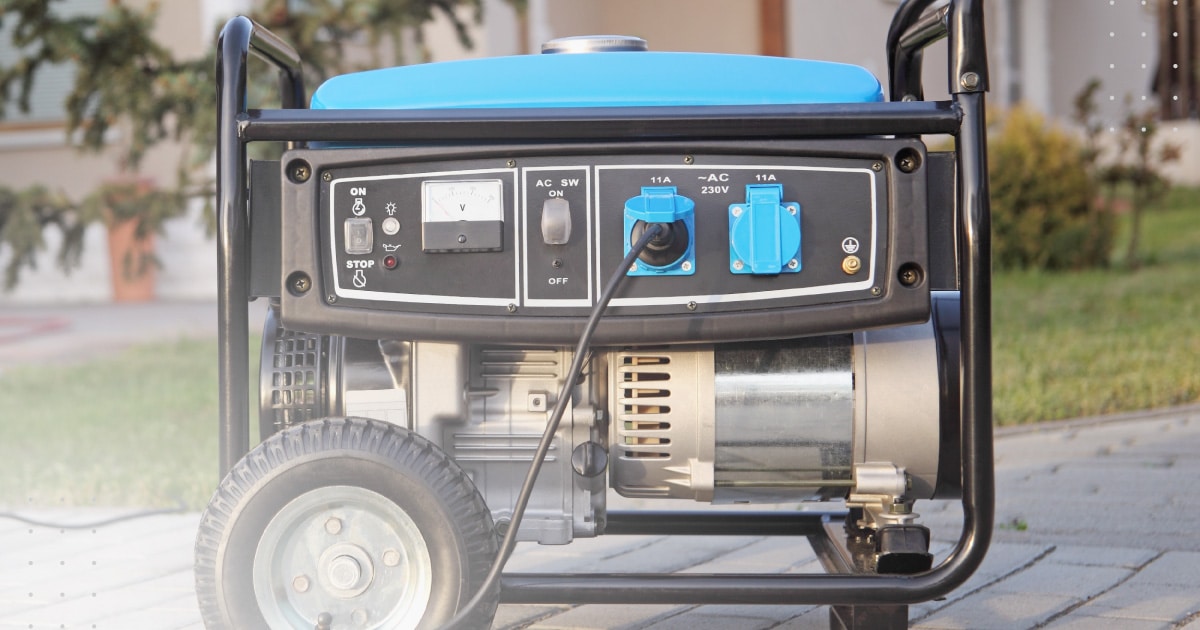Power Up Your Home: Choosing the Best Emergency Generator for You - NEC Coop
Sep 3, 2023 — Resources

Power outages can create discomfort and safety risks in your home. If you want to avoid these challenges, it’s time to consider investing in an emergency generator. However, before rushing to the hardware store to see what’s available, take a moment to carefully assess your needs, budget, and other considerations. Choosing an emergency generator is an important decision that requires thoughtful planning to ensure you make the best choice for your home.
Is an Emergency Generator the Right Choice for Your Needs?
Ask yourself a few questions to assess whether an emergency generator is a suitable and beneficial addition to your household. While it can be a life-changing upgrade for certain homes, it might not be the ideal solution for all.
- Do you have enough space to safely store and operate a generator? Portable generators must be kept at least 15 feet away from occupied structures to prevent carbon monoxide exposure. When not in use, they should be stored in a garage or shed. Think about whether it’s feasible to set up a generator if you live in a multi-family apartment.
- How frequently do power outages occur in your area? If they are common, a backup generator becomes more essential.
- What is the typical duration of power restoration after an outage? If you live in a remote location where power restoration may take days or weeks, a generator could be very valuable.
- Are there any medical concerns that could be affected by a power outage? If someone in your household relies on electrical medical equipment, having a generator may be essential for their health and well-being.
- Which devices and appliances do you consider essential during power outages? If a fully charged smartphone meets your needs for brief power outages, you might want to think about budget-friendly options like a solar charger to avoid the cost of a generator.
Choosing the Best Generator Size for Your Home
Once you are sure that a generator is the right choice for your home needs, the next step is to assess both your electrical requirements and budget, as higher-capacity generators also come with a higher price tag. If your budget falls within the range of $10,000 or more, you can likely invest in a standby generator capable of powering your entire home for an extended period. In case you’re working within a tighter budget – around a few hundred dollars – it becomes important to determine which appliances and electronic devices should take precedence for power supply during outages.
For a portable generator, a typical starting budget would be in the range of $400 to $1,000. With this amount, you can acquire a generator in the 3,000-watt range, which should be enough to power essentials such as a refrigerator, a small window air conditioner, and several lights and electronics during an outage. As you move up in wattage, the price of portable generators increases, reaching approximately $2,000 or more for models providing up to 7,500 watts of power. Such higher-capacity generators could potentially keep your entire home operational during emergencies.
While standby generators do come with a higher price tag, they offer significant convenience. These generators are permanently installed outside your home and typically activate automatically when a power outage occurs, eliminating the need to set up and fuel a portable unit manually. The cost of standby generators starts at approximately $2,000 and can go up to as much as $6,000 for the more powerful models. The added convenience and seamless operation during emergencies make them a valuable investment for many homeowners.
If the biggest generator within your budget falls short of powering all the appliances you want, you’ll face some tough decisions. You will need to prioritize your most essential appliances and calculate their combined wattages until you approach the limit of the generator. By calculating your wattage requirements, you can avoid purchasing a bigger generator than what your home requires, which could save you hundreds or even thousands of dollars. This thoughtful approach ensures that you invest wisely and only acquire a generator that perfectly matches your actual needs.
When to Shop for a Generator
Once you’ve made the choice to buy a generator, it’s a smart move to make the purchase ahead of time, well in advance of any urgent situations. In areas prone to intense tropical storms, there’s often a rush to purchase generators from stores, which can result in limited availability and higher costs for buyers. To avoid the competition, it is best to buy ahead of time when there is no immediate need, ensuring you have enough choices and better pricing options. Planning ahead allows you to be prepared for potential emergencies without the stress of last-minute purchases.
Safely Connecting Appliances to a Generator
Always remember that most appliances have two power ratings: “starting wattage” and “running wattage.” When an appliance is first switched on, it requires a surge of electricity, known as the starting wattage. Once it stabilizes, it operates at its running wattage. To manage this power variation effectively, turn on appliances one at a time after connecting a portable generator, starting with those that have the highest starting wattages. If you are nearing your wattage limit, be sure not to overload your generator by inadvertently starting one last appliance, as this could cause issues and potentially damage the generator. Prioritizing the order of appliance activation can help you maximize the performance of your emergency generator while avoiding potential problems.
Sources:
“How to Choose the Right Size Generator,” Consumer Reports, https://www.consumerreports.org/home-garden/generators/how-to-choose-the-right-size-generator-a4942266454/
“How To Choose The Right Size Generator,” Forbes, https://www.forbes.com/home-improvement/electrical/what-size-generator-to-buy/
“What Size Generator Do You Need to Run a House?” Green Citizen, https://greencitizen.com/blog/what-size-generator-to-run-a-house/
Voted #1 Electric Provider
We were recently voted the #1 Electricity Provider by the Corpus Christi Caller-Times’ Best of the Best Awards for the 7th year running!
Benefits of Membership
As a member of our co-op, you’ll enjoy the following benefits:
- You’ll get a share of our profits.
- You won’t be locked into a long-term contract.
- You’ll get a simple, competitive rate with no surprise fees or markups.
- You can get a $50 bill credit for every new member you refer.

